When stroke strikes, time is everything – in the immediate response, as well as how quickly patients begin their rehabilitation (rehab) journey.
At Wellington Hospital, a pilot project has proven how much difference earlier assessment of rehab needs and improved clinical pathways can make to recovery, along with improving patient flow through the hospital system.
The pilot led by Allied Health Consultant Steph Thompson, Rehabilitation Nurse Educator Fiona Martin and Clinical Leader Dr Brendan Ng was launched in late October 2024, trialling a new approach where rehab specialists assessed patients with stroke earlier to determine their needs and the best setting for support (i.e. hospital, home or aged residential care).
As part of a new Assessment for Rehab Team (AFRT), the clinicians worked alongside acute teams in Wellington Hospital’s neurology and neurosurgical ward carrying out assessments, creating rehab plans, and communicating these clearly to patients and whānau for their understanding. They also worked closely with:
- the community-based service AWHI (Advancing Wellness at Home Initiative) – which supports early discharge–to explore if patients could recover at home to avoid unnecessary hospital stays
- the Community Rehabilitation Clinical Nurse Specialist (CNS) for patients discharging to an aged residential care facility to ensure timely reviews of their rehab progress in the community.
“Our goal was to assess the rehab needs of every patient with stroke within 72 hours, using a standardised, comprehensive assessment, alongside a tool that measures how well people function doing regular daily tasks. It was also important for us to improve how we involved patients and whānau in discussions and decisions about treatment right from the start,” Steph says.
Weekly review meetings brought together the AFRT and clinicians from the community and hospital rehab settings to discuss patient progress, refine processes and ensure seamless transitions of care for patients.
“We saw benefits very early on,” Fiona says. “Patients and whānau, as well as the acute and hospital rehab teams, reported rehab plans were clearer and that they knew what to expect which reduced anxiety and uncertainty. We also saw a higher number of patients with more severe strokes receiving rehab in the community with AWHI rather than waiting for a bed in hospital.”
In just six months:
- 78% of stroke patients were assessed for rehab within 72 hours (a big increase compared to previous figures)
- the average length of stay for patients with stroke in Wellington Hospital’s acute ward dropped by two days
- patients waited less time for a bed at Kenepuru Hospital’s Specialist Rehabilitation ward (for patients who need rehab after a stroke), transferring there six days sooner on average than before the pilot
- patients with stroke spent less time in the Specialist Rehabilitation ward with a decrease in average length of stay from 59 days from November-March 2023/2024 to 38 days from November-March 2024/2025
- there was a 20% increase in admission of patients with stroke to Kenepuru Hospital reflecting improved flow of inpatients through the hospital system more patients with stroke with significant problems (such as difficulty walking independently) were able to go home, supported by community rehab services
- all patients with stroke previously living at home and discharged to an ARC facility from the acute ward were followed up by the Community Rehabilitation CNS who found their care needs were being met and that there was no clinical indication needing them to be transferred to Kenepuru Hospital.
The success of the pilot resulted in funding for permanent roles in this space – a Clinical Nurse Specialist in Inpatient Rehabilitation and an Advanced Allied Health Rehabilitation Professional – with both roles now appointed.
“This funding ensures the new approach continues and expands to help even more patients,” Brendan says.“We need to keep collaborating across all the healthcare settings to improve outcomes for patients with stroke and hospital flow.”
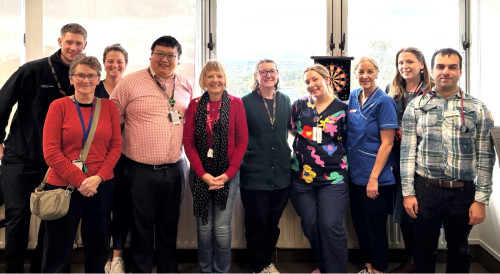
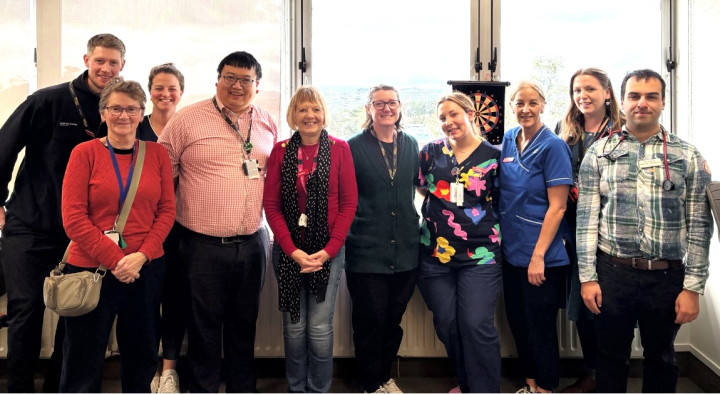
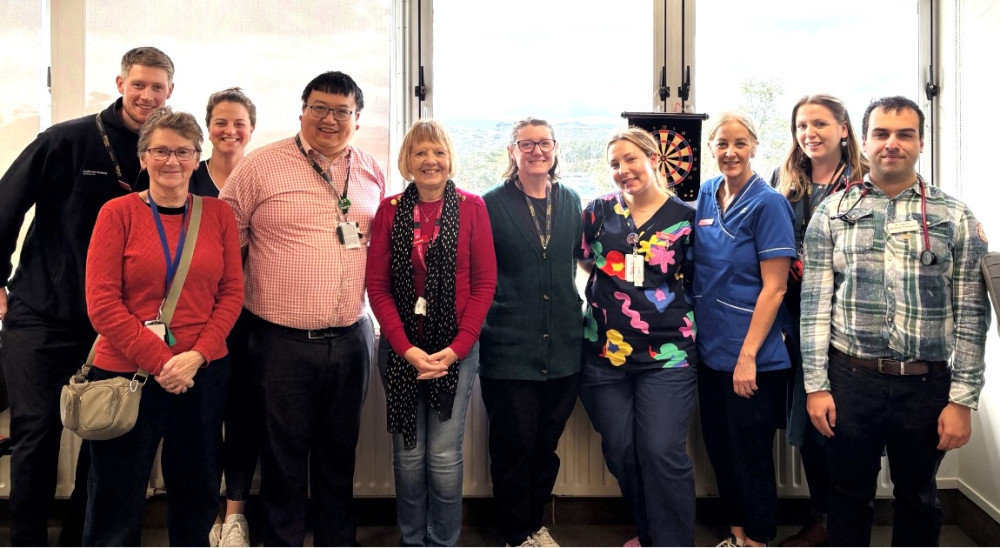
Dr Brendan Ng (4th from left) with other members of the stroke team
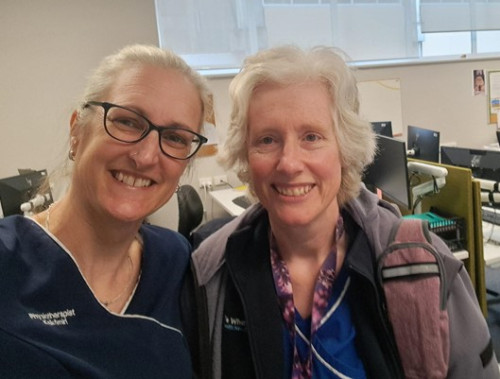
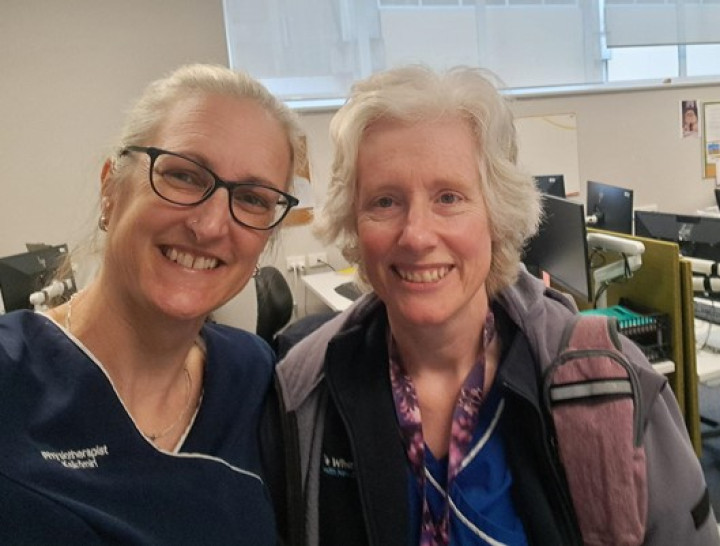
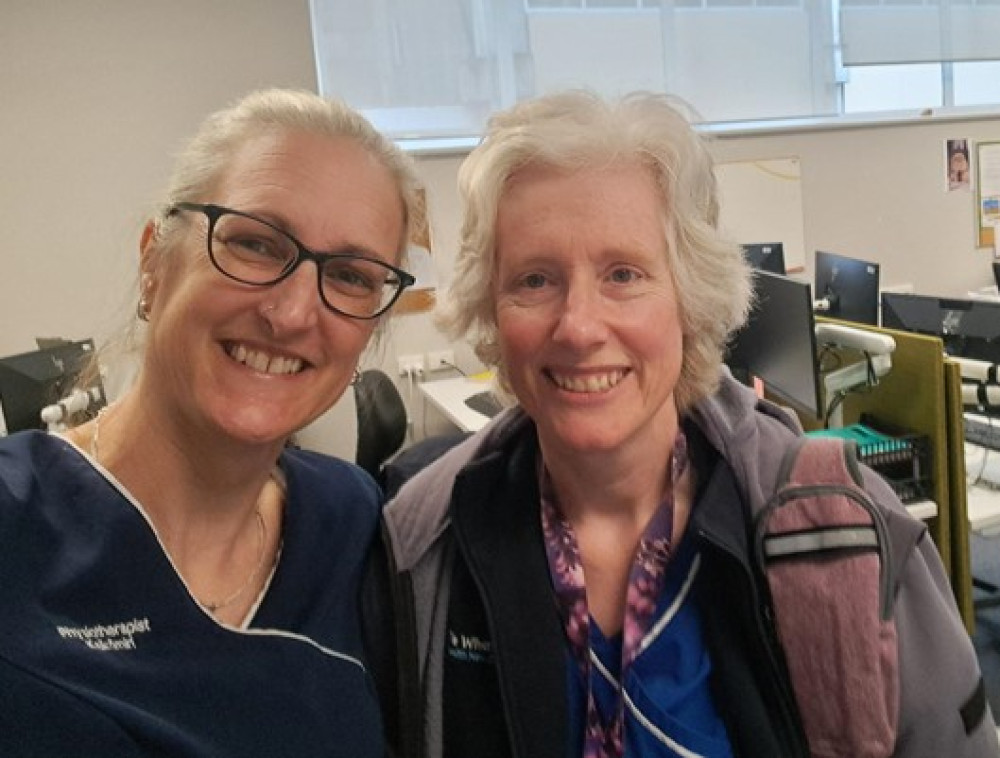
Steph Thompson (left) and Fiona Martin